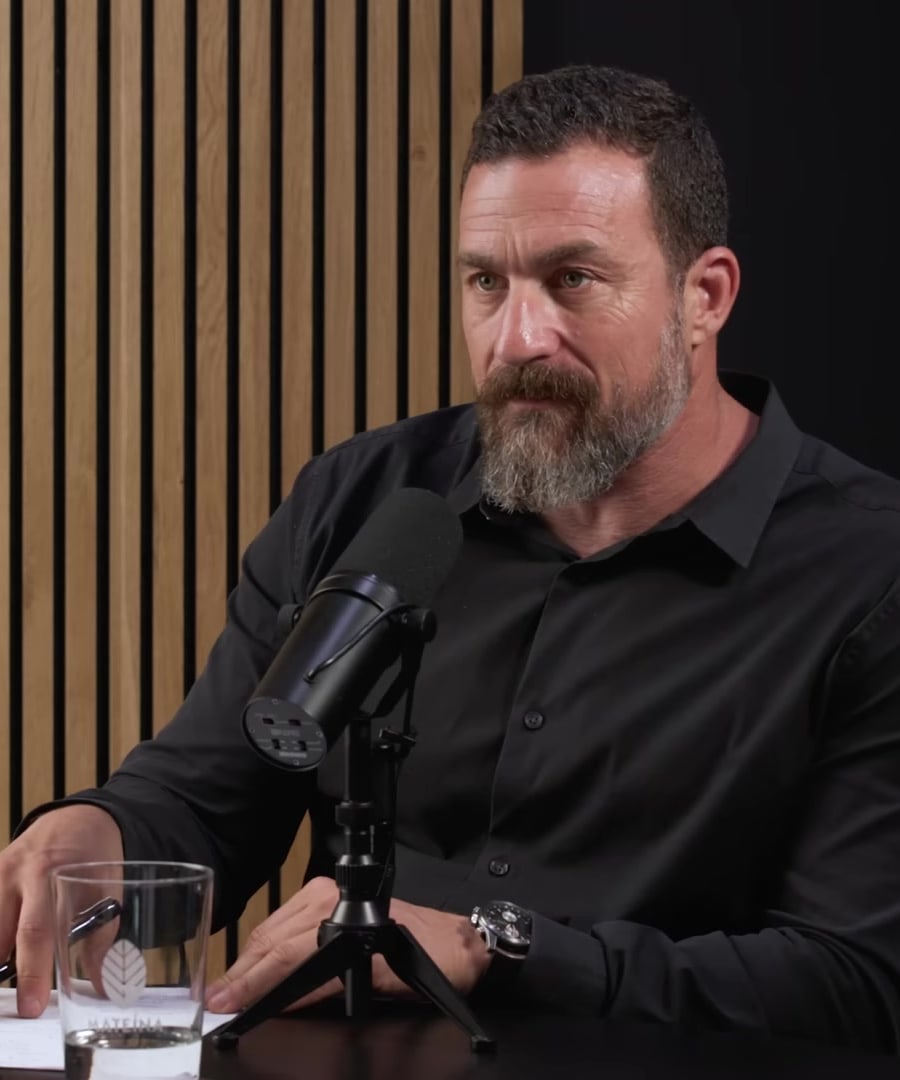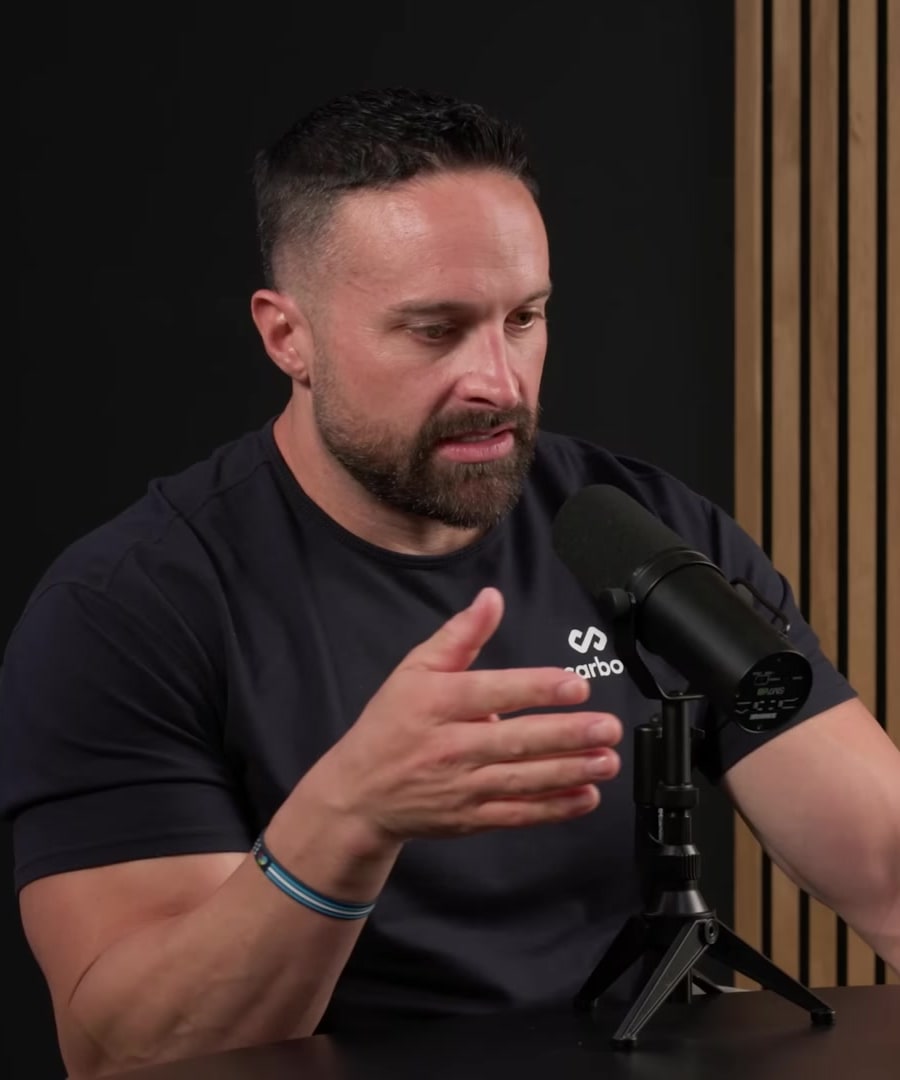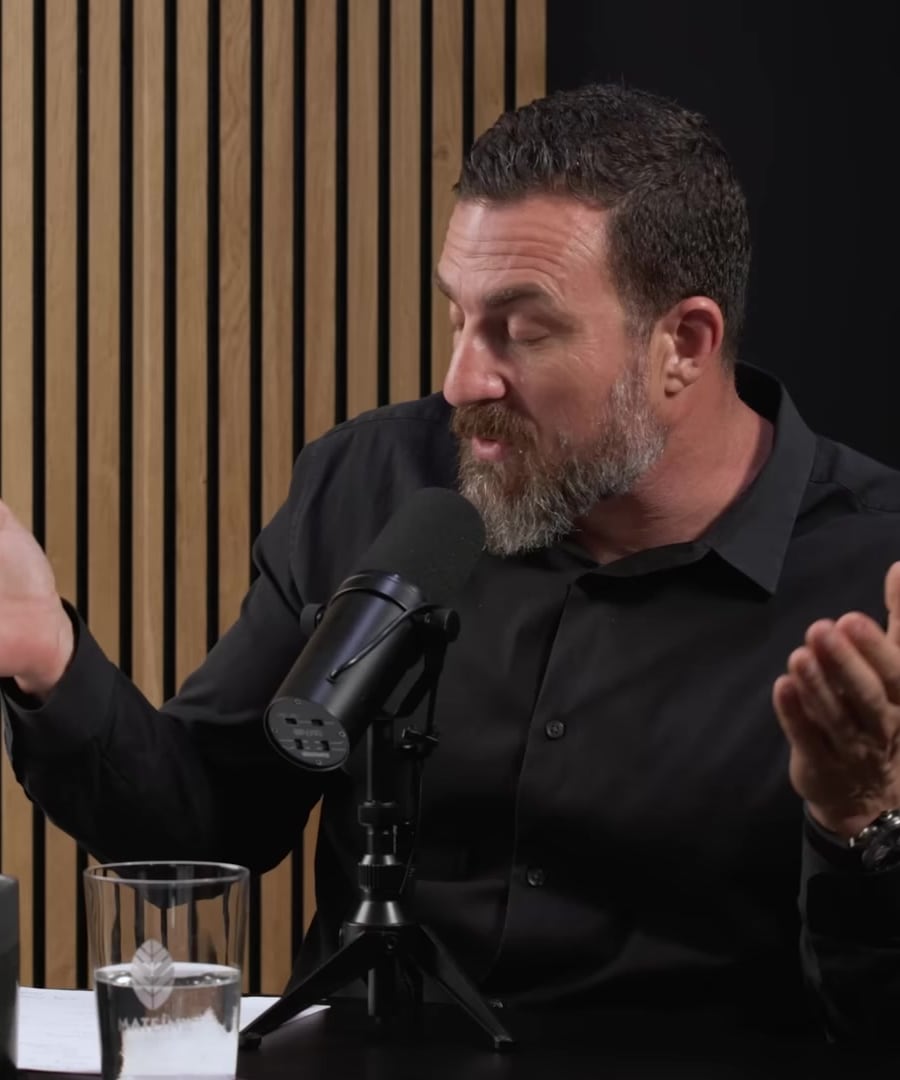I'm Gerardo, 45 years old developer, i'm mostly sit during my work hours. my meausres are 1.68 meters high and 75 kilos. I started to change my habits, bought ag1 and optimum nutrition protein, and now I do resistance training with my bike 2 to 4 times a week. What I want now is start the gym, I want to build muscle and loose body fat. Base on dr huberman podcasts, I want to have a plan with advises, for instance, how many days a week should i work with a muscle area, when should i take my proteines, what other supplements will help, where can i get a gym plan that will help maximize my exercises, what should I eat, macros percentage, etc.
Sources:
Building Muscle and Losing Body Fat: A Comprehensive Plan
To achieve your goals of building muscle and losing body fat, here are tailored recommendations from the insights shared on the .
Workout Plan
-
Frequency:
- Work out major muscle groups 2-3 times per week to allow adequate recovery and growth 1.
-
Structure:
- Resistance Training: Continue your resistance training sessions with your bike.
- Gym Workouts: Incorporate compound movements such as squats, deadlifts, bench press, and rows. Aim for 3-4 sets of 8-12 reps for muscle growth.
-
Focus and Efficiency:
- Keep workouts between 45 to 60 minutes.
- Minimize distractions (e.g., leave your smartphone in your locker) to maximize focus and efficiency 2.
Nutrition
-
Protein Intake:
- Aim for a protein-rich meal both before and after workouts to support muscle recovery. If protein pre-workout makes you sluggish, adjust to post-workout 3.
-
Amino Acids:
- Ensure each meal contains 700-3,000 mg of leucine, a key amino acid for muscle synthesis. Whole food sources are preferable (e.g., eggs, chicken, fish) 4.
-
Macros:
- Distribute remaining calories between carbohydrates and fats based on dietary preference. A balanced approach (50-60% carbs, 40-50% fats) is effective 5.
-
Meal Frequency:
- Eating 2-4 times per day is adequate. There's no need for the old-school 6-7 meals per day unless you are heavily enhanced athletes or have higher protein synthesis requirements 4.
Supplementation
-
Omega-3 Fatty Acids:
- Supplementing with omega-3s is beneficial for overall health and aiding muscle recovery 2.
-
Additional Supplements:
- Continue using AG1 greens and Optimum Nutrition Protein. These will complement your diet and help meet your nutritional needs.
Goal Setting and Tracking
-
Goal Setting:
- Set quarterly goals to gradually build muscle and lose fat. Adjust goals based on performance and ensure you're not risking injury by consulting with healthcare professionals when needed 6.
-
App for Personalized Diet:
- Consider using a personalized diet app, such as the one mentioned by Layne Norton, to track your progress, manage calorie intake, and adjust macros based on real-time performance 5.
Additional Tips
-
Hydration and Stimulants:
- Keep hydrated, and use caffeine pre-workout if necessary to boost energy levels without overloading on supplements 3.
-
Intermittent Fasting:
- If fat loss is your main goal, and it fits your lifestyle, time-restricted eating or intermittent fasting can help in managing calories and improving insulin sensitivity without hindering muscle growth significantly 1.
Following this plan, you'll be on your way to building muscle, losing fat, and achieving a balanced, healthy body. Always consult with a healthcare professional or a personal trainer to tailor the specifics based on personal health conditions and progress.
RELATED QUESTIONS-
What supplements are essential for muscle growth?
Sources:
For muscle growth, and his guests on the emphasize the importance of several key supplements:
-
Protein:
- High-quality protein sources, such as whey protein, beef, poultry, and eggs, are crucial for providing essential amino acids in the right ratios for muscle health 1.
- Leucine, a key amino acid, is especially important and should be ingested at 700-3,000 mg per meal to support muscle synthesis and repair 2.
-
Creatine:
-
Beta-Alanine:
- This supplement supports muscular endurance and reduces fatigue during exercise, particularly beneficial for activities in the 60-240 second range, such as interval training and rowing 3.
-
Omega-3 Fatty Acids:
- While not directly an anabolic supplement, omega-3 fatty acids are crucial for overall health and can aid in muscle recovery 5.
-
Branched-Chain Amino Acids (BCAAs):
- Including leucine, isoleucine, and valine, BCAAs help ensure balanced amino acid levels, particularly if your diet is lacking in high-protein meals 4.
Including these supplements in your regimen can help support muscle growth and recovery. Always consult with a healthcare provider before starting any new supplements to ensure they are appropriate and safe for you.
RELATED QUESTIONS-
How should I distribute my macros for muscle building?
Sources:
For muscle building, it is crucial to maintain a well-balanced macronutrient distribution. Here are some key insights from the :
Protein:
- Protein Intake: Aim for at least 1 gram of protein per pound of body weight daily to support muscle recovery and growth. This intake ensures ample amino acids are available for muscle repair and synthesis 1.
- Distribution: Distributing protein intake evenly across meals can optimize muscle protein synthesis. For instance, 30-50 grams of protein per meal can help maximize muscle growth 2 3.
Carbohydrates:
- Role in Nutrition: Carbohydrates shouldn't be the primary focus for muscle building but are still important, especially for providing energy during workouts. A moderate intake of about 130 grams per day can be beneficial, adjusted based on individual metabolic health and exercise frequency 4.
- Utilization: The body prioritizes using glucose from carbs for energy, which helps in sparing protein for muscle synthesis 5.
Fats:
- Hormonal Balance: Fats are important for hormonal health and should not be too low in the diet. A diet with around 30% of calories from fats can support satiety and overall well-being 3.
Practical Example:
A balanced macronutrient distribution could look something like this (percentages are of total daily calorie intake):
- Protein: 30-35%
- Carbohydrates: 40-50%
- Fats: 20-30%
Incorporating these balanced macronutrient distributions ensures that you have enough energy for your workouts, adequate protein for muscle repair, and fats for hormonal health. It's pivotal to adjust these macros based on your specific goals, activity levels, and individual health needs.
RELATED QUESTIONSCan I grow muscle with a carbs restricted diet? lowering the number to, let's say, 50 grams per day?
Sources:
Yes, muscle growth can still be achieved on a restricted carbohydrate diet, such as one with only 50 grams of carbs per day. Carbohydrates are not the only macronutrient crucial for muscle building. According to , the primary drivers of muscle growth are sufficient protein intake and adequate training stimulus.
Key Points:
-
Protein:
- Ensure a high protein intake of around 1 gram per pound of body weight daily to support muscle repair and growth 1.
-
Fat:
- Maintain a healthy fat intake, around 20-30% of your total daily calories, to support hormonal balance and overall health 2.
-
Carbohydrate Role:
- While carbs are a convenient source of energy, the body can adapt to using fats (via ketosis) and protein for energy, thus still allowing muscle growth 3.
-
Ketosis Adaptation:
- In keto-adapted individuals, where the body efficiently uses ketones for energy, muscles can still be maintained, provided that protein intake remains high and training intensity is adequate 4.
Practical Tips:
- Timing and Types of Carbs:
- Concentrating your carb intake around workouts can help maximize energy and recovery.
- Supplementation:
- Consider supplements like branched-chain amino acids (BCAAs) or essential amino acids (EAAs) to support muscle protein synthesis on a low-carb diet.
Ultimately, individual responses can vary, and monitoring your progress while adjusting as necessary is crucial. Consulting with a healthcare professional or nutritionist is also recommended to tailor the diet to your specific needs and goals.
RELATED QUESTIONS-
I have Optimum nutrition gold standard protein supplement. Should I also get a BCAA or EAA supplement?
Sources:
If your total protein intake is sufficient, additional supplementation with BCAAs (Branched-Chain Amino Acids) or EAAs (Essential Amino Acids) might not be necessary. and note that, generally, if you are already consuming a high-quality protein supplement like Optimum Nutrition Gold Standard, you likely do not need additional BCAAs. EAAs could be considered if your total protein intake is lacking, but they are not essential if your protein intake from supplements and food is adequate 1.
RELATED QUESTIONSwhen should I take Optimum nutrition gold standard protein supplement, if i want to improve my muscle grow?
Sources:
To improve muscle growth with your Optimum Nutrition Gold Standard protein supplement, timing your intake can be crucial.
-
Early in the Day: Consuming protein early in the day, preferably before 10:00 AM, can enhance muscle tissue maintenance and growth due to better protein synthesis driven by the circadian clock gene known as BMAL 1 2.
-
Post-Workout: Ingesting protein shortly after resistance training is also beneficial. The resistance training increases protein synthesis, and consuming protein post-exercise can aid in muscle repair and growth 3.
-
Spreading Intake: Eating protein 2-4 times a day is generally sufficient for most people. This helps in maintaining a steady supply of amino acids, which supports muscle growth and repair 3.
-
Reliable Dosage: Aim for around 1 gram of protein per pound of body weight daily. This dosage helps in muscle quality improvement and overall health 4.
By following these guidelines, you can optimize muscle growth with your protein supplement.
RELATED QUESTIONS-
I'm Gerardo, 45 years old developer, i'm mostly sit during my work hours. my meausres are 1.68 meters high and 75 kilos. I started to change my habits, bought ag1 and optimum nutrition protein, and now I do resistance training with my bike 2 to 4 times a week. What I want now is start the gym, I want to build muscle and loose body fat. Base on dr huberman podcasts, I want to have a plan with advises, for instance, how many days a week should i work with a muscle area, when should i take my proteines, what other supplements will help, where can i get a gym plan that will help maximize my exercises, what should I eat, macros percentage, etc.
- RELATED QUESTIONS
What supplements are essential for muscle growth?
- RELATED QUESTIONS
How should I distribute my macros for muscle building?
- RELATED QUESTIONS
Can I grow muscle with a carbs restricted diet? lowering the number to, let's say, 50 grams per day?
- RELATED QUESTIONS
I have Optimum nutrition gold standard protein supplement. Should I also get a BCAA or EAA supplement?
- RELATED QUESTIONS
when should I take Optimum nutrition gold standard protein supplement, if i want to improve my muscle grow?
- RELATED QUESTIONS


















